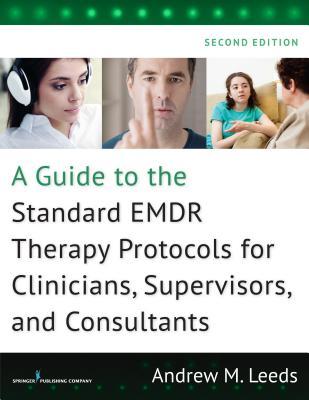Product desciption
A Guide To The Standard Emdr Therapy Protocols For Clinicians Supervisors And Consultants Second Edition Paperback Andrew M Leeds by Andrew M. Leeds 9780826131164, 0826131166 instant download after payment.
This second edition of an acclaimed guide to the theory and practice of EMDR provides updated information regarding new evidence for its treatment efficacy and an in-depth presentation of state-of-the-art research on its mechanisms of action. The book reviews outcome studies suggesting EMDR s effectiveness for diagnoses beyond PTSD, along with studies on its use for treatment of depression, with cancer patients, and with groups. It surveys new strategies on advanced EMDR therapy topics such as when treating dissociative and personality disorders, along with references for more in-depth information. The second edition also provides an expanded glossary and extensively updated references and reflects changes corresponding to the "DSM-5."
The book delivers clear, concise treatment guidelines for students, practicing clinicians, supervisors, clinic directors, and hospital administrators involved in the treatment of those with PTSD, specific phobias, and panic disorder. For researchers conducting treatment outcome studies, it provides easy-to-access treatment guidelines and a comprehensive set of fidelity checklists for all aspects of EMDR therapy. Many new charts, forms, scripts, illustrations, tables, and decision trees present key information clearly and concisely to guide treatment planning and documentation. Case studies with transcripts illustrate the different protocols and further guide practitioners of EMDR therapy in informed decision making.
New to the Second Edition: Describes updated information on mechanisms of action of EMDR therapy Presents new evidence-based EMDR therapy Delivers outcome studies for the use of EMDR with a broad range of diagnoses Surveys new research about using EMDR with cancer patients and those with severe depression Discusses the evolution of the theory of memory networks in EMDR therapy Examines the effectiveness of bilateral stimulation on adaptive memories and images Reflects changes resulting from "DSM-5" Includes extensively updated and expanded references and glossary Provides new charts, forms, scripts, illustrations, decision trees, and case studies illustrating different protocols
Key Features: Presents an easy-to-use set of forms and scripts available for download fromwww.springerpub.com/leeds-2eFocuses on safety and efficiency of EMDR therapy in many situations Expands AIP model regarding using EMDR to resolve psychological defenses Discusses ethical issues in clinical application, consultation, supervision, and research "


